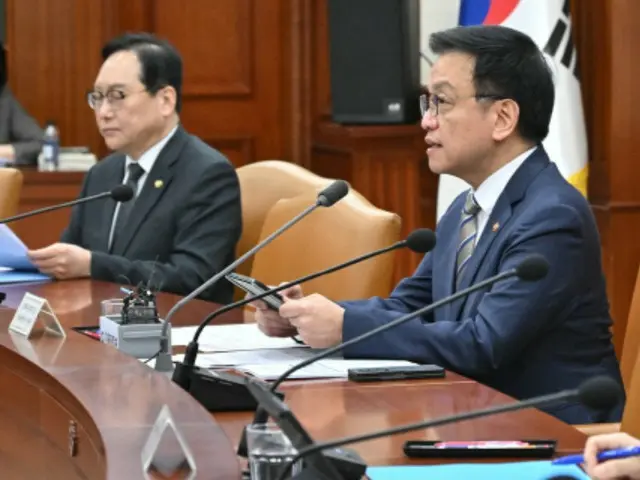On the 20th, South Korea's Ministry of Strategy and Finance and Ministry of Trade, Industry and Energy said the talks
On the U.S. side, Treasury Secretary Scott Bessent and U.S. Trade Representative Jamison Greer, who is in charge of trade policy, will represent the U.S. side, and on the Korean side, economic commander Choi Sang-mok will represent the South Korean side.
The Deputy Prime Minister and Minister of Strategy and Finance, as well as the top trade official, Minister of Trade, Industry and Energy Ahn Deok-keun, will attend the talks. Choi will visit the U.S. on the 22nd, and Ahn will visit the U.S. the following day on the 23rd.
The South Korean government is expected to attend the "2+2 trade talks" with the United States in Washington.
"These consultations are being conducted at the suggestion of the U.S. side," he said.
"These talks will be held in the U.S., and we are currently finalizing the schedule and agenda," he explained. With the U.S. side taking the lead in holding the talks, it is seen as a sign of its eagerness to make progress in trade negotiations.
One of the focal points of the talks will be whether the U.S. side will formally raise the issue of defense cost adjustment.
During the speech, he likened South Korea to a "money machine" and argued that South Korea's defense contribution should be increased to $10 billion, nine times its current amount.
The Trump administration is aiming to cut huge amounts of defense spending in order to solve the country's serious budget deficit problem.
In a recent phone call with Prime Minister Han Deok-soo (Acting President), President Trump also mentioned defense cost sharing, saying, "Once
The South Korean government said it would prioritize and separate trade and security issues, citing that there have been no specific requests from the US on this matter.
The two countries have already completed talks on defense cost sharing from 2026 to 2030 at the end of the Biden administration. In this regard, defense cost-sharing negotiations have not yet begun in earnest.
The situation is very different from that of Japan. The South Korean government has emphasized that the agreement between the two countries has already been finalized, and has sought to minimize the scope of adjustments to defense cost sharing even if there are requests for it.
On a television program on the 20th, Yasu said, "So far, the U.S. side has not raised the topic of defense spending," and added, "If such talk were to come up, we would
"We will listen carefully to the position of the other country, convey it to the relevant authorities, and the relevant department will respond," he said. The South Korean government plans to focus on trade issues in the upcoming talks.
The proposal will include a comprehensive package that includes the reduction of bilateral tariffs and tariffs on items such as automobiles, steel, and semiconductors.
The issue of participating in the LNG project is likely to be used as a bargaining chip to achieve the tariff minimization goal. However, it is necessary for the United States to clearly define Korea as the top negotiating target and to hold negotiations.
While Japan has been actively pursuing these goals, there have recently been voices both inside and outside the government calling for careful consideration in negotiations with the United States, which involve long-term national interests.
In addition to Japan, other countries under similar pressure from the United States are also facing the risk of losing their trade agreements as the United States has yet to finalize trade policies such as semiconductor tariffs.
South Korea is facing a presidential election on June 3, and the current acting government is focusing on laying the groundwork for negotiations, including the Alaska Gas
It is possible that the final decision on long-term national interests, such as the development of the nuclear power station, will be left to the next government. In a response to a question in the National Assembly on the 15th, Choi said, "Because there is a counterparty involved, we will negotiate to the maximum extent (now) from the perspective of national interests.
I think it would be best to complete the remaining parts after the new government is inaugurated." Ahn also said on the same day, "Rather than hastily concluding the negotiations, there are matters that need to be confirmed and then moved forward.
"The countries will continue to hold discussions to reach a mutually amicable resolution."
2025/04/21 06:17 KST
Copyrights(C) Herald wowkorea.jp 104

